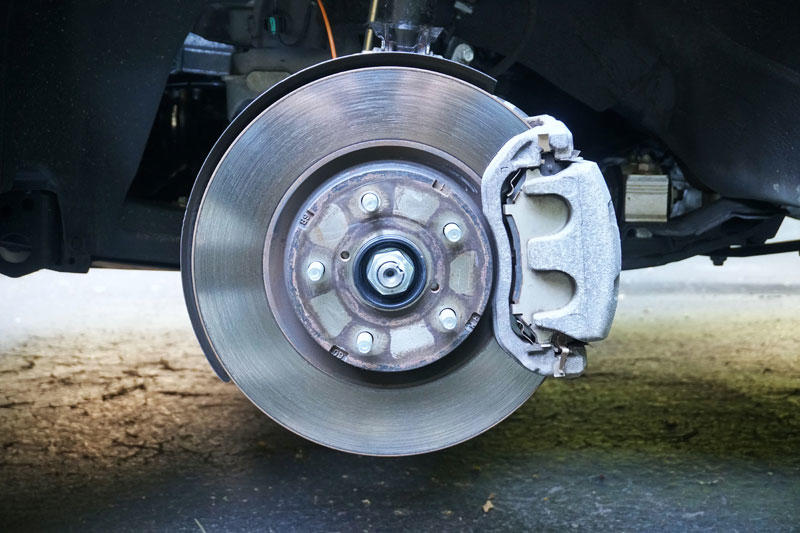Keeping your trailer’s brakes and suspension system in good condition is crucial for safety, stability, and performance on the road. Faulty brakes can lead to longer stopping distances, while worn-out suspension components can cause bumpy rides, uneven tire wear, and poor handling. Regular maintenance ensures your trailer stays safe and reliable for every haul.
In this guide, we’ll cover how to check and maintain your trailer’s brakes and suspension system so you can avoid costly repairs and prevent accidents.
1. Understanding Trailer Brakes and Suspension
Trailer Brake Systems
Trailers use different types of brakes depending on their size and weight:
- Electric Brakes – Controlled by the tow vehicle’s brake controller, these brakes apply force when the driver presses the brakes.
- Hydraulic Surge Brakes – Activated by the trailer’s forward momentum when the tow vehicle slows down.
- Air Brakes – Found on heavy-duty trailers and require a compressed air system.
Trailer Suspension Systems
The suspension system keeps the trailer stable and helps absorb road shocks. Common types include:
- Leaf Spring Suspension – Uses stacked metal springs to absorb impact.
- Torsion Axle Suspension – Uses rubberized components for a smoother ride.
2. How to Check Your Trailer’s Brakes
Step 1: Inspect Brake Pads and Shoes
🔎 Look for thin, cracked, or worn-out brake pads. If they are less than 1/4 inch thick, replace them.
Step 2: Check Brake Rotors and Drums
🔎 Warped, rusted, or grooved rotors and drums reduce braking efficiency. Smooth surfaces ensure proper contact.
Step 3: Test the Trailer Brake Controller
🔎 If you have electric brakes, connect the trailer and test the brake controller in the tow vehicle. If braking feels weak or uneven, adjust the settings.
Step 4: Inspect the Brake Wiring
🔎 Look for frayed, loose, or corroded electrical connections, which can cause brake failure.
Step 5: Test the Emergency Breakaway System
🔎 The breakaway system automatically engages the brakes if the trailer detaches. To test it:
✅ Pull the breakaway switch pin and ensure the brakes engage fully.
Step 6: Check Brake Fluid (for Hydraulic Brakes)
🔎 If your trailer has hydraulic brakes, check the fluid reservoir for low levels or dirty fluid.
🔧 Tip: If braking feels spongy or weak, bleed the brake lines to remove air bubbles.
3. How to Maintain Your Trailer Brakes
✅ Replace Worn Brake Pads and Shoes – Change them if they show signs of wear.
✅ Clean and Lubricate Moving Parts – Prevents rust and squeaky brakes.
✅ Adjust Electric Brake Sensitivity – Ensure braking force matches the trailer’s weight.
✅ Test the Brakes Before Every Trip – Prevents surprises on the road.
🔧 Tip: Service trailer brakes every 12 months or 12,000 miles.
4. How to Check Your Trailer’s Suspension System
Step 1: Inspect Leaf Springs or Torsion Axles
🔎 Check for cracks, sagging, or broken leaf springs. For torsion axles, look for uneven ride height.
Step 2: Examine U-Bolts and Fasteners
🔎 Loose or rusted U-bolts, shackles, and equalizers can affect suspension alignment.
Step 3: Check Shock Absorbers (If Applicable)
🔎 Press down on the trailer—if it bounces excessively, the shocks may be worn.
Step 4: Inspect Suspension Bushings
🔎 Look for cracked or deteriorating rubber bushings, which can cause excess movement.
Step 5: Look for Uneven Tire Wear
🔎 If tires show excessive inner or outer wear, it may indicate a bent axle or misaligned suspension.
🔧 Tip: If your trailer rides rough or sways, inspect the suspension for worn components.
5. How to Maintain Your Trailer’s Suspension
✅ Tighten U-Bolts and Fasteners – Prevents suspension misalignment.
✅ Lubricate Moving Parts – Apply grease to bushings and pivot points to reduce wear.
✅ Replace Worn-Out Bushings – Old bushings cause loose suspension movement.
✅ Check Axle Alignment – Misalignment causes poor handling and tire wear.
🔧 Tip: Have a professional inspect your suspension every 6,000 miles if you tow frequently.
6. Signs of Brake and Suspension Problems
🚨 Brakes:
❌ Longer stopping distance
❌ Squeaking or grinding noises
❌ Trailer pulling to one side
❌ Spongy or weak braking
🚨 Suspension:
❌ Excessive bouncing or swaying
❌ Uneven tire wear
❌ Noisy creaking sounds
❌ Trailer tilting to one side
🔧 Tip: If you notice these symptoms, inspect your trailer immediately to prevent further damage.
7. Final Thoughts
Maintaining your trailer’s brakes and suspension is essential for safe towing, better handling, and longer lifespan. By regularly checking, lubricating, and replacing worn components, you can avoid costly repairs and dangerous failures on the road.
🚛 Need a professional trailer inspection? Contact Idaho trailer sales today for expert service and repairs!

